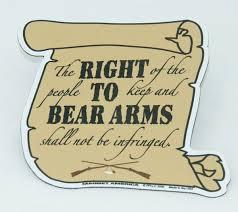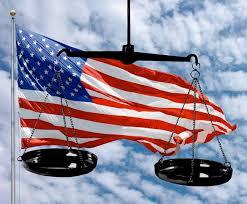

The Bill of Rights can’t be Altered without an Amendment
By Harold Pease, Ph. D
The present assault on the 2nd Amendment reminds us of the 2013 Western States Sheriff’s Rebellion stopping cold President Barack Obamas’s new 23 executive orders further restricting the right of gun owners without authorization from Congress. But today Republicans need to be reminded that neither the executive branch, through executive orders, nor the legislative branch, through laws, can constitutionally legislate away an amendment of the Bill of Rights, so banning AR-15’s or bump stocks is unconstitutional. Only a new amendment with 3/4ths support of the states, as outlined in Article V of the Constitution, can alter an amendment.
Many may not remember their basic U.S. History courses as to why the Second Amendment exists in the first place. Certainly, when enacted, there was no thought of restricting type of firearm, or where, or who could carry. So its placement as the second most valued freedom in the Bill of Rights had nothing to do with personal safety or even hunting, these were already assumed. It was specifically placed right after freedom of religion, speech, press and assembly to make certain that these freedoms were never taken from us. It was aimed (pun intended) squarely at the government. But certainly we need have no fear of the government today?
One must remember that the early patriots did not ask the existing British government if they could revolt against them. They argued in The Declaration of Independence, that they were “endowed by their creator with certain unalienable rights, that among these are life, liberty, and the pursuit of happiness” coming from a much higher source than mere man and that “whenever any form of government becomes destructive of these ends, it is the right of the people to alter or to abolish it, and to institute new government.” God is referenced five times in this document and thus, they believed, He sanctioned their rebellion. They were expected to suffer evils while sufferable, “but when a long train of abuses and usurpations, pursuing invariable the same object, evinces a design to reduce them under absolute despotism, it is their right, it is their duty, to throw off such government, and to provide new guards for their future security.”
The right of revolution requires the means of revolution and this is why the Second Amendment exists. Normally the ballot box is the only self-correction needed but they had no intention of giving up the same right that they exercised to give us freedom in the first place. Nor were they pious enough to assume that their correction would stay in place and that future generations would never need the more serious self-correction they used.
The wordage of the 2nd Amendment was stronger than any other sentence in the Constitution. “A well regulated militia, being necessary to the security of a free state, the right of the people to keep and bear arms, shall not be infringed.” They saw this right as essential to freedom and specifically forbade the federal government any authority with respect to arms because historically it was always a government that took away liberty.
An armed populace had twice proved its value to liberty in the Revolutionary War. Many do not remember why Lexington and Concord were so important. The Americans learned that the British planned to go door to door to confiscate their firearms so they gathered and hid them in these two villages. Now the British night gun raid, and Paul Revere’s desperate midnight ride warning the Americans en-route, make sense. The Battle of Saratoga preventing British conquest of the northeast by General Johnny Burgoyne was stopped, not by the military, but by angry farmers with their own military styled assault rifles. This American victory encouraged other countries, notably France, to come into the war on our side. It is doubtful that we would have won the war without an armed citizenry.
The Founders’ attitude regarding guns—even military issue— was clear. Thomas Jefferson wrote: “No free man shall ever be debarred the use of arms.” And George Washington said: “A free people ought not only to be armed,” but also, “they should promote such manufacturies [sic] as tend to remind them independent of others for essential, particularly military, supplies” (Gun Control, Freemen Report, May 31,1975, p. 1).
The Utah Sheriff’s Association letter to Obama was the most vocal in the Sheriff’s Rebellion of 2013. It read in part, “We respect the Office of the President of the United States of America. But, make no mistake, as the duly-elected sheriffs of our respective counties, we will enforce the rights guaranteed to our citizens by the Constitution. No federal official will be permitted to descend upon our constituents and take from them what the Bill of Rights—in particular Amendment II—has given them. We, like you, swore a solemn oath to protect and defend the Constitution of the United States, and we are prepared to trade our lives for the preservation of its traditional interpretation.”
This is commendable but will Congress, under Republicans, remember that an amendment, unlike a law, may not be altered to destroy or weakened—it “shall not be infringed?” The 2nd Amendment can only be altered by 3/4th of the states with a new amendment and this is not likely to happen when so many Americans fear their own government.
Dr. Harold Pease is a syndicated columnist and an expert on the United States Constitution. He has dedicated his career to studying the writings of the Founding Fathers and applying that knowledge to current events. He taught history and political science from this perspective for over 30 years at Taft College. Newspapers have permission to publish this column. To read more of his weekly articles, please visit www.LibertyUnderFire.org.